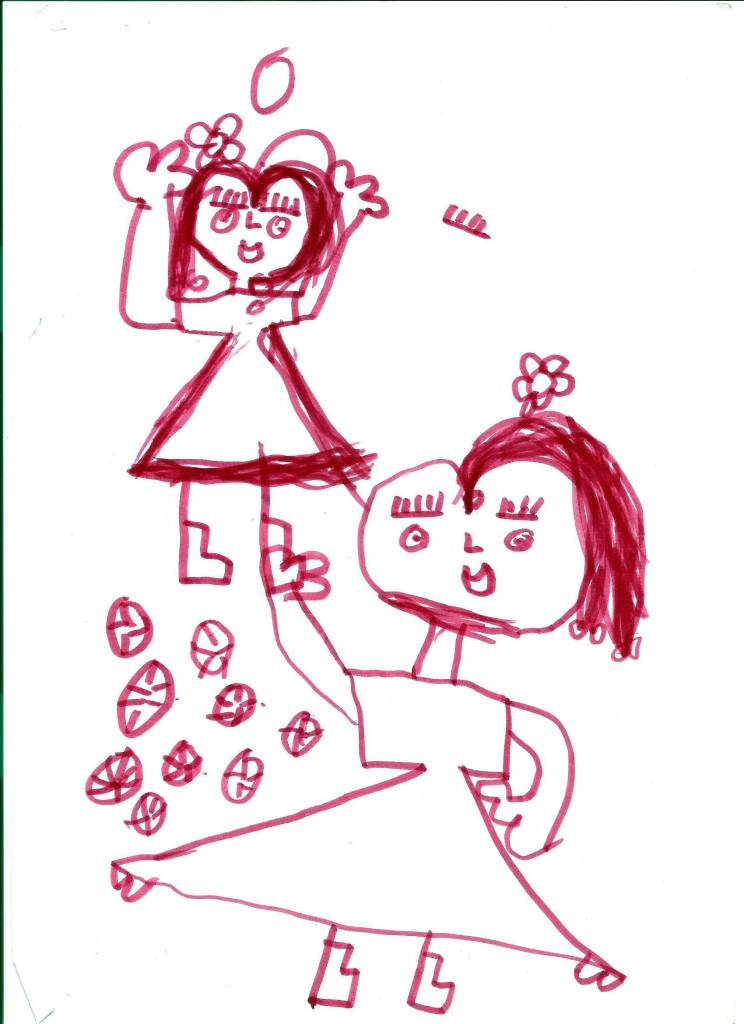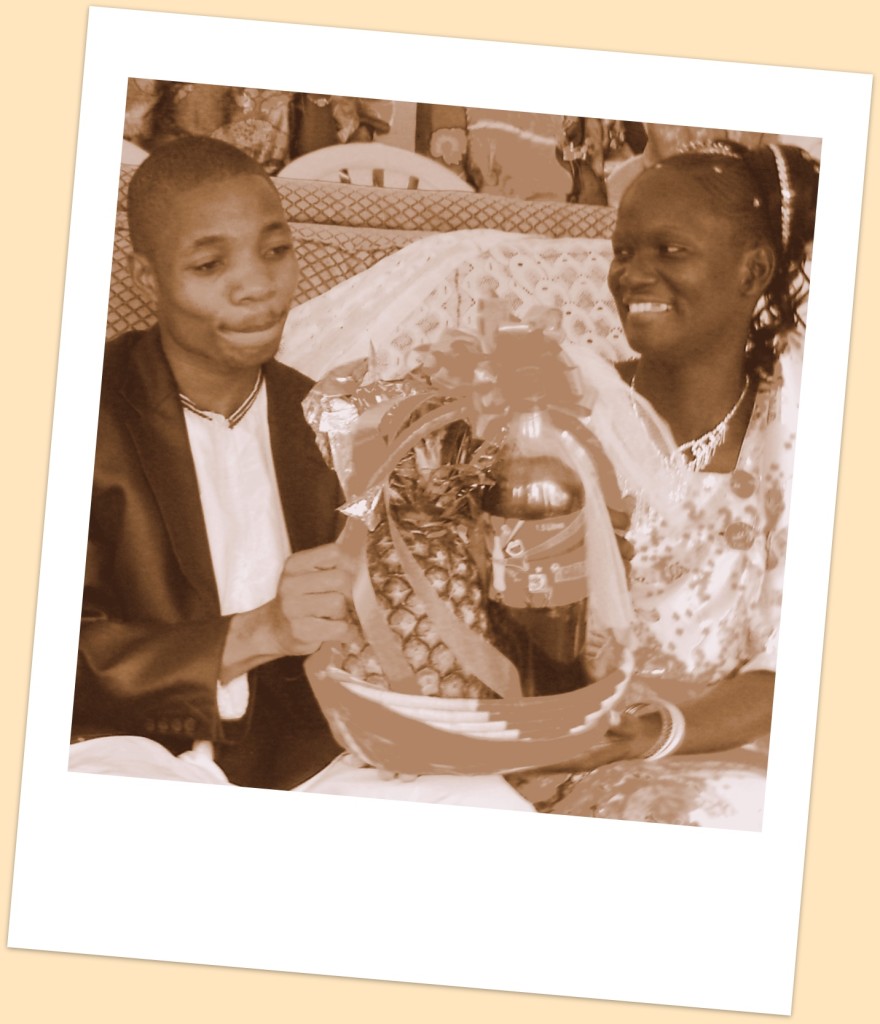Despite my serious effort to warn this dude, he said he loved me. He said he was ready; that he will trust God for whatever may happen.
So we have a wedding date! He proposed last week!

Our blogger worries that a new law in Uganda will make life, love and marriage more difficult for those with HIV. Credit: Amy Quinn/WikiCommons
Like every girl in reciprocated love, I am having a full blast of it: to have someone who cares, who looks after you, who tells you the sweet words that make you feel the one and only and best creation on earth ….. You know the feelings, how love and companionship sweeten our lives.
HIV demands some planning
Last week we registered at my clinic in Kampala, Uganda’s capital, as a discordant couple. This means one person is HIV positive and one is HIV negative.
This is important because he will get counseling, routine check-ups, and perhaps Pre Exposure Prophylaxis when we want to have babies.
An HIV positive person who follows ARV treatment consistently becomes non-infectious. Viral load becomes undetectable. So I must take my ARVs without fail every day to sustain a discordant relationship. You bet I do!
My boyfriend, who turned 28 this week (I will be 29 in January), and who lives in the same neighbourhood (this is how we met), told his family that he is marrying an HIV positive woman. Some family members objected, but he was strong, and we are planning our wedding and to live happily ever after.
For many girls living with HIV, even finding a fellow HIV positive man to date is hard. Women may suffer from self stigma and low self-esteem; they may fear disclosing their HIV status to a possible partner. Or they disclose, and the men fail them, they run away.
Another kind of failure
This year, our government failed us big time. It passed the anti HIV/AIDS bill, which has some really bad clauses for those of us living with HIV.
Concentrating on Clause 4: a person who knowingly transmits HIV to another shall on conviction be liable to a fine of up to US$ 1,900 (a fortune in Uganda) or imprisonment for up to ten years, or both.
Clause 4 means well in trying to penalize intentional infections. However, not everyone who infects someone intended to do so. My baby girl was infected during breastfeeding. I did not do that on purpose. I was too poor to afford baby formula. Does that make me a criminal?
How can you prove intention to infect? Or who was infected first? This law lends itself to malicious use, to manipulation and blackmail. It can be used by angry husbands and relatives to disposes wives and widows of land, home and children.
Clause 4 brings insecurity. It deepens stigma and mistrust and may lead to risky behavior. Women are not going to start telling guys they are dating that they have HIV. They may choose one night stands and multiple partners to avoid being identified, blamed and charged.
To me, the bill is saying that positive people must only marry positive people. Is it the role of the state to control love?
What is wrong with our lawmakers that they approve a law that makes us wary and ashamed of our condition, that does not help us embrace life with a healthy attitude?
I hear young people say they would rather not know their HIV status, instead of knowing and running the risk of being criminalized later.
Sadly, I have to conclude that our leaders are ignorant. As a nation, we have a lot of sensitization to do for both our communities and leaders.
In the meantime, wedding bells are ringing for us. We are blessed; we are lucky. But with this new Bill, many people living with HIV will despair of ever finding love and building a family.
 Barbara Kemigisa is an HIV/family planning campaigner who lives positively with HIV in Uganda. When she is not campaigning, she dabbles in fashion design, plays guitar, composes and sings R&B songs about living with HIV with the same passion she puts in her work towards zero new infections.
Barbara Kemigisa is an HIV/family planning campaigner who lives positively with HIV in Uganda. When she is not campaigning, she dabbles in fashion design, plays guitar, composes and sings R&B songs about living with HIV with the same passion she puts in her work towards zero new infections.
I am proud to be one of the few Ugandans to say publicly that I live positively with HIV.
But, in the flurry of speeches and interviews, of extolling antiretroviral treatment and ‘normalizing’ the disease, it worries me [...]]]>
I am proud to be one of the few Ugandans to say publicly that I live positively with HIV.
But, in the flurry of speeches and interviews, of extolling antiretroviral treatment and ‘normalizing’ the disease, it worries me to see that people, instead of seeing HIV as a danger, see it as no more than a fever.
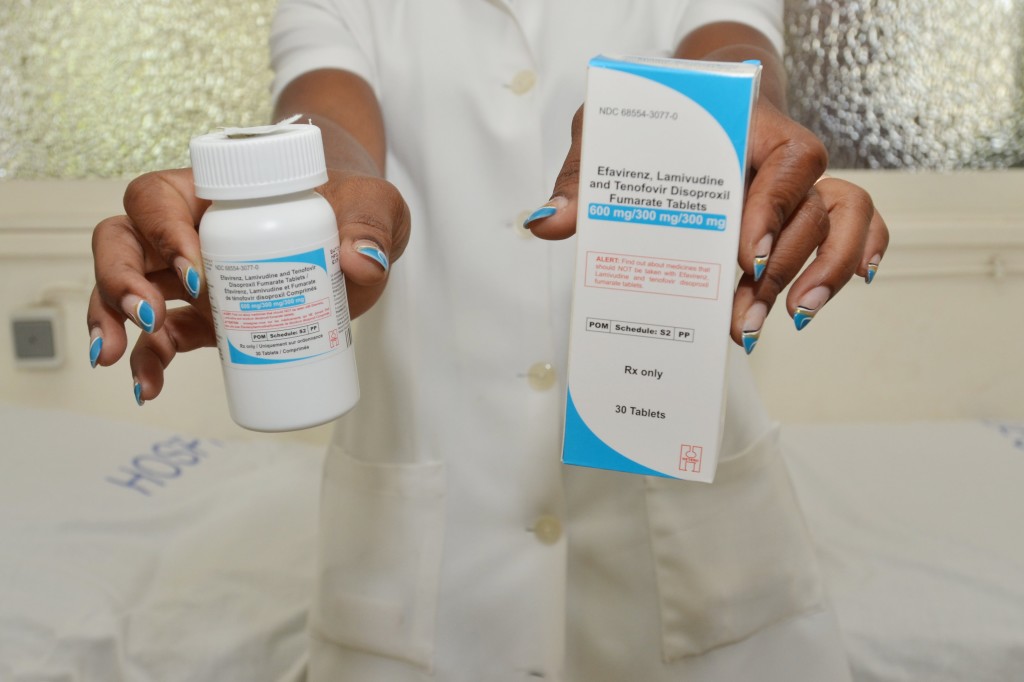
No more sugarcoating the virus: taking ARVs for the rest of your life is no picnic , says HIV positive activist Barbara Kemigisa
Sometimes, after a talk, people tell me: “You make me feel like I can get HIV and live with it.”
Well, yes, I live with HIV, but I would rather not. And so would you.
I am not going to sugarcoat the virus any longer, because I don’t want you to get comfortable and be reckless, risking HIV infection.
Reality check
It is high time we change our tune and our messaging and put HIV back in its place as a scary disease- because it is deadly and we ought to keep away from it as much as we can.
Irrespective of how inspiring we, HIV activists, may be, it does not mean we don’t go through challenges living with the virus.
Those daily tablets suck! It sucks even more knowing there is no stopping time! ARVs are for life. Until death do us apart.
Lucky us who have the courage to swallow the antiretroviral (ARVs) pills every day at the fixed time, on the street or in the shopping mall. But I feel sad for those who take the pills in the toilet because they can’t risk anyone finding out their secret.
Let’s look at the side effects of ARVs. Some bodies get deformed and bloated (by lipodistrophy) and some appear burnt as if scalded by hot water (reaction to Nevirapine). Some people have horrible nightmares or liver damage. Who wants to join our club?
And every day we wonder whether the drugs will work for us, whether we will be among the 30 percent who develop resistance to ARVs. We only have three pill regimens in Uganda, so every drug failure courts disaster.
Wake up!
I hear young women say they would rather get HIV than get pregnant. It’s sad that pregnancy is scarier than HIV.
We need to rethink the ABC strategy (abstain-be faithful-condomize) because, with a million campaigns about family planning services, girls think they no longer need condoms . Contraception protects us from unwanted pregnancy, they say. And what protects from HIV?
It is not surprising that Uganda accounts for the third largest number of new HIV infections in the world, after South Africa and Nigeria, and our prevalence is rising again.
Why are many of us silent and yet we know what’s killing us? Wake up! How do we get to zero new infections? By loving life and living without taking unnecessary risks.
Living with HIV is survival for the fittest. If you board this train, we will welcome you and help you. But it is best not to get on board. Stay HIV-free. It’s worth it. We only have one life.
Yours proudly living with HIV,
Barbara Kemigisa
 Barbara Kemigisa is an HIV/family planning campaigner who lives positively with HIV in Uganda. When she is not campaigning, she dabbles in fashion design, plays guitar, composes and sings R&B songs about living with HIV with the same passion she puts in her work towards zero new infections.
Barbara Kemigisa is an HIV/family planning campaigner who lives positively with HIV in Uganda. When she is not campaigning, she dabbles in fashion design, plays guitar, composes and sings R&B songs about living with HIV with the same passion she puts in her work towards zero new infections.
]]>
Back then, in 2009, her CD4 count was only seven. She was very sick and had some skin infection that made her look and smell [...]]]>
Back then, in 2009, her CD4 count was only seven. She was very sick and had some skin infection that made her look and smell bad.
Her mother had lost hope for Rukiya and brought her to our association. Although I am neither a doctor nor a nurse, I could help the mother emotionally. I kept telling her to love her child despite her ill health.
Doctors put Rukiya immediately on antiretrovirals. She recovered and has been taking her daily pills conscientiously ever since, along with her mother. When she is at school, the matron reminds her to take the pills.
So hard to talk about HIV
Rukiya’s story tells us a lot about couples and HIV.
The mom cleans a church pit latrine and the dad is a bricklayer. The mom says she found out she was HIV positive during antenatal care. But she did not believe the diagnosis; she was faithful to her husband and thought he was too.
Or maybe she believed it but did not dare speak. So she kept quiet about her status.
It could be that the husband knew or suspected he was HIV positive and he too kept quiet.
I totally understand why it was hard for Rukiya’s mother to accept her initial diagnosis or talk to her husband about it.
Women are usually the first ones in a couple to learn they are HIV positive, at antenatal care.
It is really hard for you, as a woman, to talk to your partner about your HIV status, and have him understand you, not blame you.
So a woman will hide her status, and this brings many problems. For example:
- Reinfection if your partner is HIV positive.
- Self stigma and denial – always blaming yourself.
- Violence, especially when a man finds out later from someone else.
- Mistrust in families, spouses blaming each other about who brought the virus into the family.
Rukiya was delivered healthily, but at age two she fell sick. At hospital, the child and her parents were tested. All were HIV positive and started antiretroviral therapy. I have stayed close to them, so close that Rukiya calls me Mummy.
The parents went on to have three more children, now aged four, two, and ten months, all born HIV negative thanks to ARVs.
I tell Rukiya that I am also HIV positive and I have a family, a job and a career helping other people with HIV, and that she, too, will have a rich and happy life. And she gives me a big tooth-gapped smile and hugs me.
I am so privileged to have in my life this child, who is not from my womb, but who calls me Mummy Jackie although I am not her real mother.
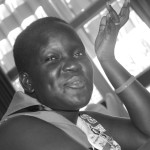 Jacquelyne Alesi is a wife, mother, daughter, HIV activist and Programme Director at the Uganda Network of Young People Living with HIV/AIDS, an organization that since 2003 works to improve the quality of life for HIV-positive youth in Uganda.
Jacquelyne Alesi is a wife, mother, daughter, HIV activist and Programme Director at the Uganda Network of Young People Living with HIV/AIDS, an organization that since 2003 works to improve the quality of life for HIV-positive youth in Uganda.
I was 17 years old and living in Wakiso district, 20 kms north of Kampala. My boyfriend was 24 and he was everything to me, but I was so [...]]]>
I was 17 years old and living in Wakiso district, 20 kms north of Kampala. My boyfriend was 24 and he was everything to me, but I was so wrong. With him, I got a triple whammy, three things that were very hard to live with: I lost my virginity, became pregnant and contracted HIV. That’s why I don’t like to talk about the past, because it makes me cry. My baby son died on June 3, 2005, when he was eight months old because I did not know that we were both HIV-positive.
After his death, I was sick on and off. At school, I could not concentrate in class, thinking about my baby boy. I felt out of place with my fellow students. The baby’s father had dropped me when I was pregnant, and died not long afterwards.
What kept me strong were my lovely parents, who encouraged me to cry out my pain, to overcome the problems and to study hard so I could have a brighter future.
One year after my son’s death, my parents suggested an HIV test. I agreed. I thought I was OK. I got a shock. I cried. I kept reading the results and asking the counselor if those were really mine.
I was devastated. I crossed the road without looking and somehow got home, I don’t know how. My parents realized I had tested POSITIVE because I was running like crazy. The first thing my dad said was, “Don’t worry, we are here for you no matter what”.
That is what I needed to hear after my long journey of trauma.
I finished my advanced level and went to university, not without struggles, challenges and disappointments – like friends who disclosed my status without my consent.
Love knocks at my door
In 2008, I met the man I was waiting for. I was tired of being single. I needed someone to share joy and sadness. And there he was: two years older than me and studying for a degree in information technology.
We dated for over one year without having sex. I had promised myself to tell my HIV status to the love of my life before becoming intimate. When I told him, he was in denial. He couldn’t believe it. He said I was inventing it to drop him.
We went for a test together: he was HIV negative and I was HIV positive. He said the machines were lying. We took another test: same results.
He disappeared for three months.
One day he left a message on my phone: “Hello, my love, can we meet this evening?”
I feared he would say this was the end, or perhaps beat me up because I broke his heart, so I took a friend along. He said: “What I have to say is between me and you”. I told my friend to wait aside.
He said: “Am sorry, my love. I want you to be my wife, will you marry me?”
That was last thing I expected!
In 2009 we got engaged and I started ARV treatment. Alpha, my eldest son, was born HIV-negative that year.
On September 17, 2012, we were married in church in Kampala. That was a very wonderful day for us and our families. Alpha is now four years old, John is 18 months old, and we look after four HIV-positive orphan children.
I am 28 years old, openly living with HIV in Uganda, in a loving discordant relationship, with access to lifesaving ARV treatment, able to give birth to two wonderful children who are both HIV-negative as a result of prevention of mother-to-child transmission services.
However much I don’t like my past, it has helped me build a better future.
Unfortunately, not everyone has been as lucky as me in accessing treatment, because of stigma and discrimination, coercion and violation of their rights. As an activist, I help young people accept their HIV status. This is my dream: that every person living with HIV in Africa may have what I have – ARV treatment, health and love.
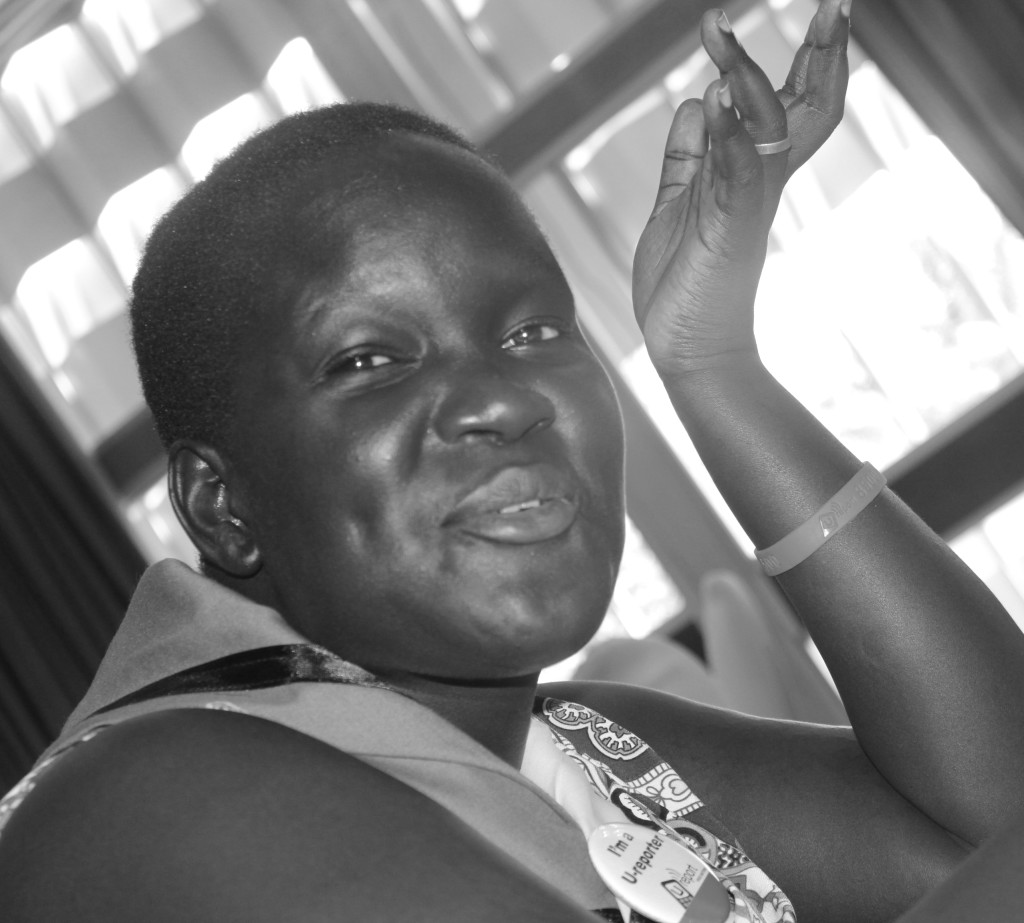 Jacquelyne Alesi is a wife, mother, daughter, HIV activist and Programme Director at the Uganda Network of Young People Living with HIV/AIDS, an organization that since 2003 works to improve the quality of life for HIV-positive youth in Uganda.
Jacquelyne Alesi is a wife, mother, daughter, HIV activist and Programme Director at the Uganda Network of Young People Living with HIV/AIDS, an organization that since 2003 works to improve the quality of life for HIV-positive youth in Uganda.
]]>
I was very pregnant and very happy. I lived in Rome, Italy, and I wanted a home birth.
I wanted music, soft light, friends, baby on my [...]]]>

Safe motherhood for all. By F. Beaumont.
My daughter Esmeralda turns 18 today. Like all parents, I am amazed at how time flies. Like all mothers, I get reminiscent about those days, 18 years ago.
I was very pregnant and very happy. I lived in Rome, Italy, and I wanted a home birth.
I wanted music, soft light, friends, baby on my stomach still attached by umbilical cord, no drugs, and no epidural. A birth by my own rules, not by a cold hospital’s.
I found a group specialized in home births – Il Melograno. Their package included ob-gyn and midwife, courses, support and, more importantly, a woman-friendly feel. A photographer from Marie Claire magazine would do a photo reportage on my happy home birth.
Our premise: pregnancy is neither a disease nor a disability. Pregnancy and birth have become over-medicalized; women should reclaim it from doctors overly fond of control and caesareans. My family, my colleagues and the baby’s father thought I was crazy. Home births are more common now but women still battle to extricate pregnancy and birth out of the hospital realm.
In Brazil, we recently lost a battle for a centre for natural birth in Rio de Janeiro.
Clueless mommy
In my case, at midnight, after 30 hours of labour, I was stuck at 6 cms dilatation – and exhausted. A home birth must be 100 percent natural, so the few drops of oxitocyn to trigger full dilation had to be administered in hospital, three blocks away. There I went. At 2am my daughter was born – and promptly taken away to the nursery.
At 5:30am a nurse literally dumped my baby girl in my arms and left. No instructions on how to feed, nothing. My midwife and friends were coming at 8 am. What to do? I had never been around a newborn. I was like Carrie Bradshaw in Season 2 of Sex and The City – domesticity and motherhood were not part of my landscape.
So there I was, baby on one hand, baby book on the other, trying to figure it out. This is the most ridiculous and pathetic image of modern motherhood, I thought. How did we end here, from birth as a group event to 6 AM loneliness in hospital?
Less than 24 hours later, against hospital rules, I signed waivers absolving doctors of any responsibility and checked myself out.
I went home and turned on the CD player. My daughter’s godmother had been listening to the Rolling Stones: “You can’t always get what you want”. I chuckled.
Two close friends, one in Windhoek and one in London, recently tried a home birth but ended in hospital, just like me. Still, we were happy to go through labour at home.
Meanwhile, many women struggle to have a safe birth – anywhere. About half a million women die in childbirth very year. There are not enough trained midwives to ensure a safe labour, whether at home or at a clinic,

Art by Nelly Romeo Alves, photo by E. Zimbres
At a conference on reproductive health in Berlin last week, the World Health Organisation reported that one woman dies every minute for lack of adequate pregnancy and birth services.
A cruel paradox: the world proffers to revere motherhood but does not make it safe and comfortable for mothers to give birth.
]]>